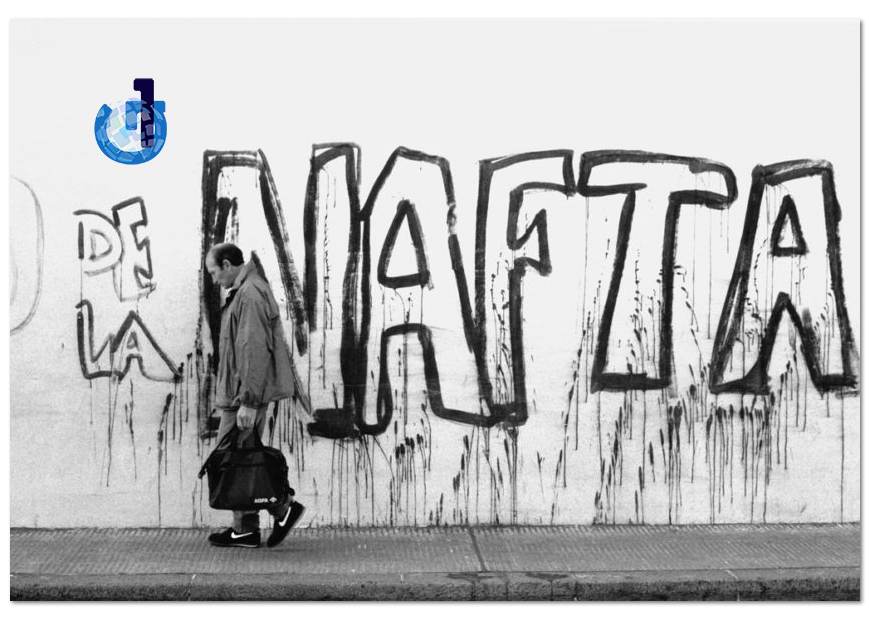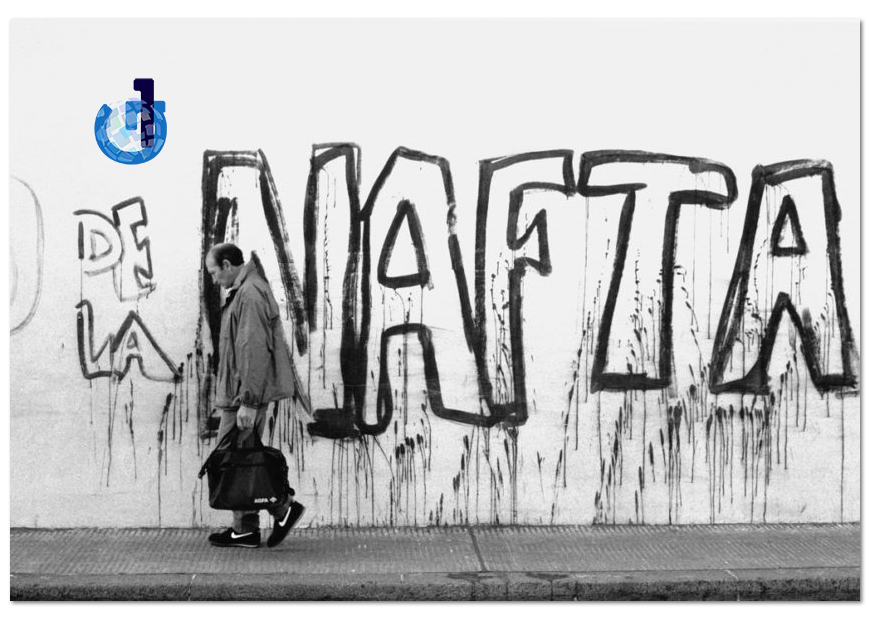
It can be argued that both Mexico and the United States are better off without NAFTA. As the numbers point out, the trade between the United States and Canada are about equal at about 25 Billion Dollars annually, both trade partners opening about the same number of jobs for each other and investment opportunities.
But when it comes to Mexico and the United States, NAFTA seems to be only staggering the United States Agricultural community and in Mexico, NAFTA is only benefiting a few at the top, while displacing the average Mexican citizen.
The United States is currently Mexico’s largest trade partner, with 88.66 percent of Mexican exports going to the United States. As a result, Mexico’s economy is largely tied up in the United States’. Due to this increased dependency on the United States’ economy, Mexico was affected by the 2008 U.S. financial crisis more than any other Latin American nation.
The US also imports $7 Billion dollars more from Mexico than it exports, which Donald Trump will point to and will use as point of negotiation when discussing a new deal with Mexico. This deficit in trade between US and Mexico is one that hurts the US economy. Although one can argue that the US has a need for the cheaper Mexican labor, the long term effects of such a deficit will only make that need greater for the next generation.
Looking at the pure trade numbers alone, Mexico can not make a good case to be a good trade partner for the United States or Canada. Its Exports far out number its imports and from competition from Asian markets, the argument of cheap labor can not match the stagnation which it causes to the economies of both of its northern neighbors.
Although the dependence which Mexico has on the United States did not happen by accident, in the times of cold war between the US and what was then the USSR, and with the rise of communism in places like Cuba, the US became increasing aware of the threat of a strong independent and potential social or worst commun

ist Mexico. This threat was real as far as the US was concerned, they imagined that Mexico could be a hostile nation like Venezuela or Cuba. This threat was increased even more because at that time Mexico was the capital of Latin American think tanks and political thought. It was were Fidel Castro had met Che Guevara and planned the successful take over of Cuba.
As a key partner in the agreement, the effects that NAFTA has had on the Mexican economy is essential to understanding NAFTA on a whole. A key factor in this discussion is the way the Agreement was presented to Mexico; namely, that it would increase development of the Mexican economy by providing more middle class jobs that would enable more Mexicans to lift themselves out of the lower classes.
Thus, wages, employment, attitudes, and migration all present essential areas of analyses to understand effects NAFTA has had on the Mexican economy. The overall economic effects of NAFTA on the Mexican economy have been mild in light of the promises made about the deal when it was being negotiated. Economic growth has been steady at around two percent, but that growth is far from the growth the deal was supposed to bring. However, NAFTA has boosted foreign investment in Mexico, and it has allowed Mexico to boost exports which now compose a large portion of the Mexican GDP.
Unfortunately for Mexico, the foreign investments have only taken from Mexicos wealth and bought large portions of land, and placed a need on services and products upon the Mexican people that filter the countries monetary funds out of Mexico. The foreign investments which were suppose to strengths Mexicos economy and provide growth and infrastructure have only increased their own bottom-line without bringing anything to the average Mexican.
Overall, unemployment in Mexico rose following the passage of NAFTA, largely due to the increased competition from United States agriculture. By permanently tying Mexican economic growth to an export-heavy model, new jobs crea

ted under NAFTA have largely been in the low-wage manufacturing sector, with real manufacturing wages falling to 12 percent below the 1994 level by 2002
Inequality in the country still remains high, a trend that mirrors the economic trends in the United States. Overall, new income is distributed upwards, so new wealth is not distributed to the vast majority of Mexican workers. Due to this phenomenon, those who would benefit the most by expressing themselves politically face increased barriers to entry into the political system due to social isolation and lack of influence through wealth.
Essentially in Mexico, the NAFTA agreement is not in anyway benefiting the Mexican people, it is however benefiting the top 1% who are the beneficiaries of large US based contracts and Canadian investors who have over the last 20 years proportionately purchased much the

